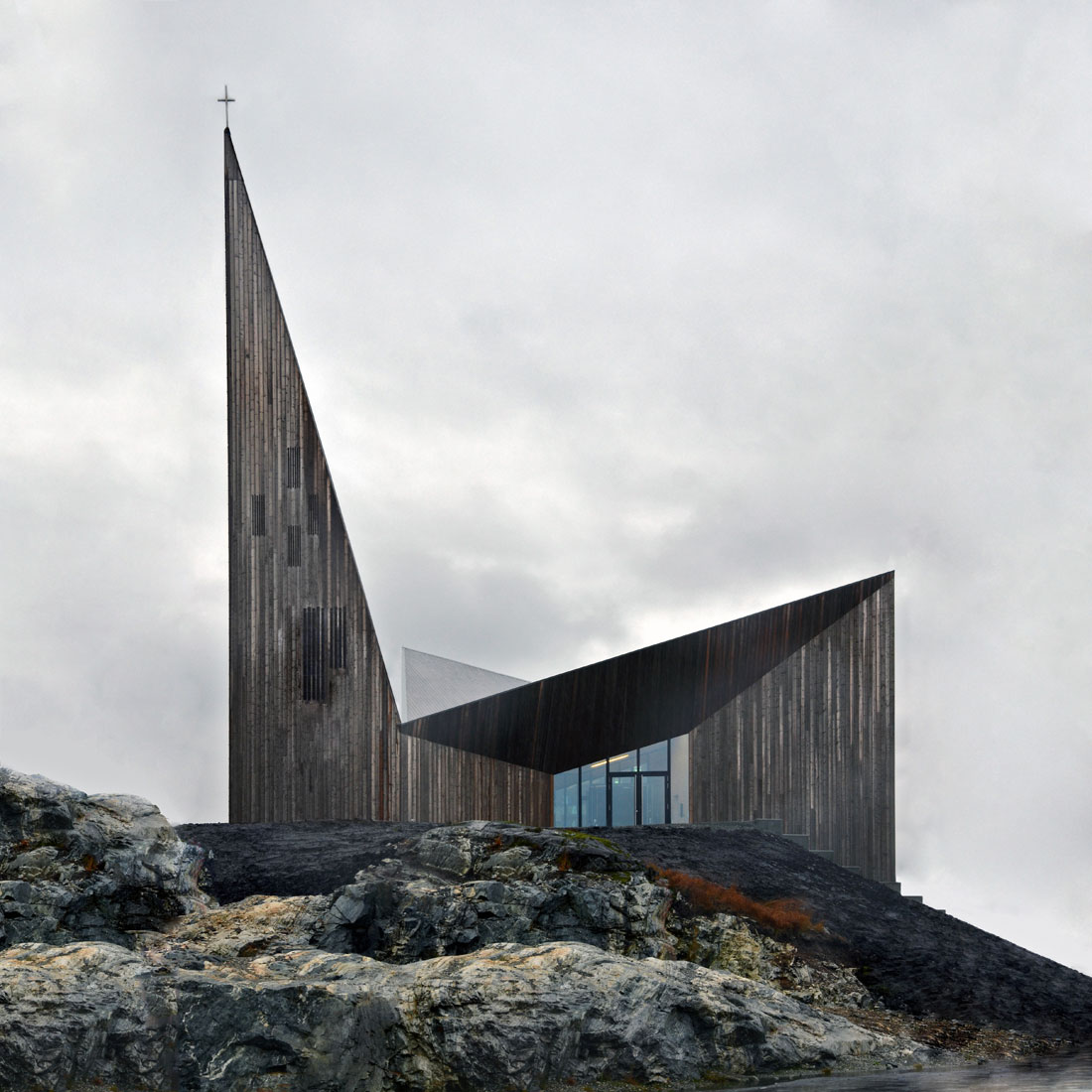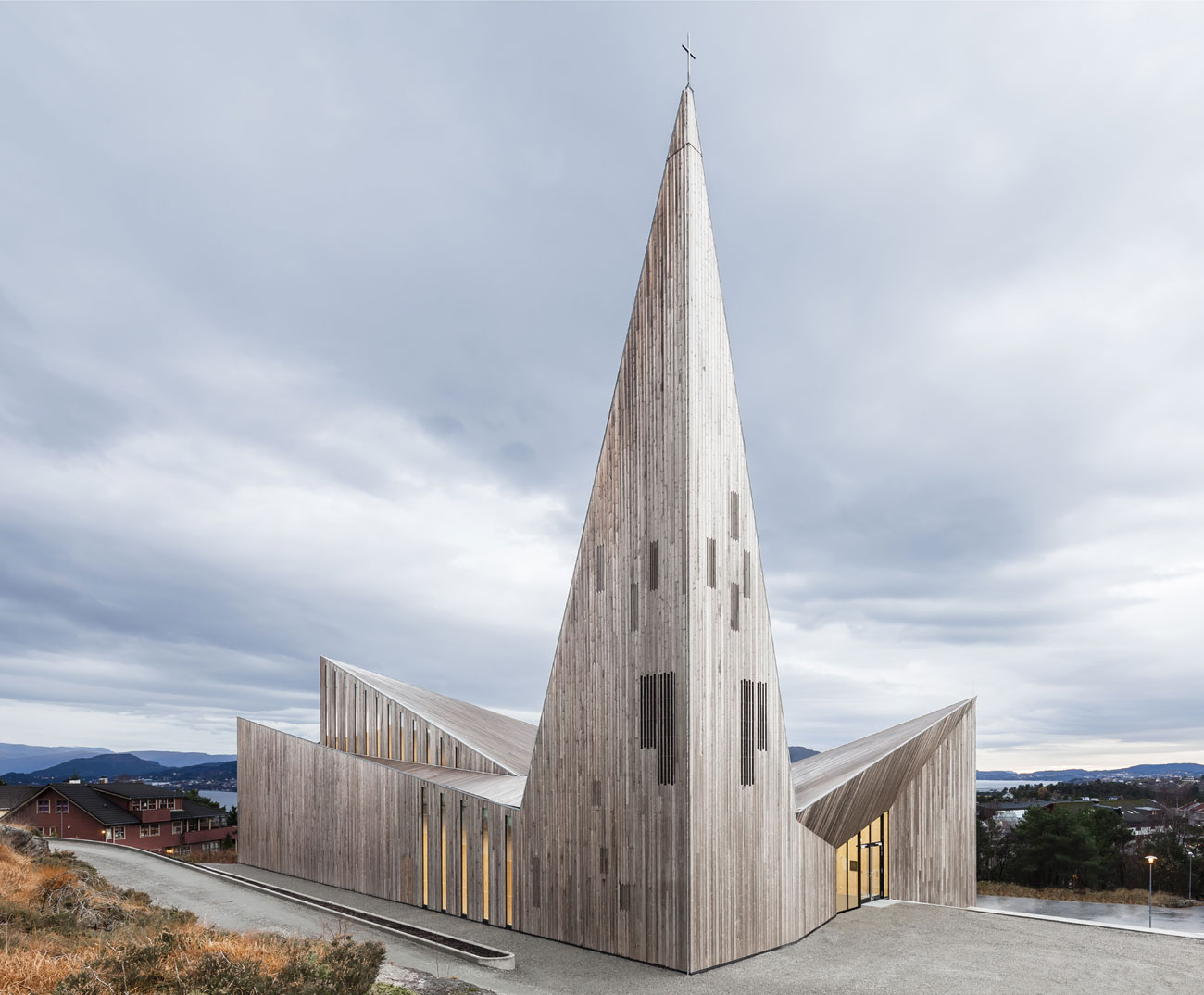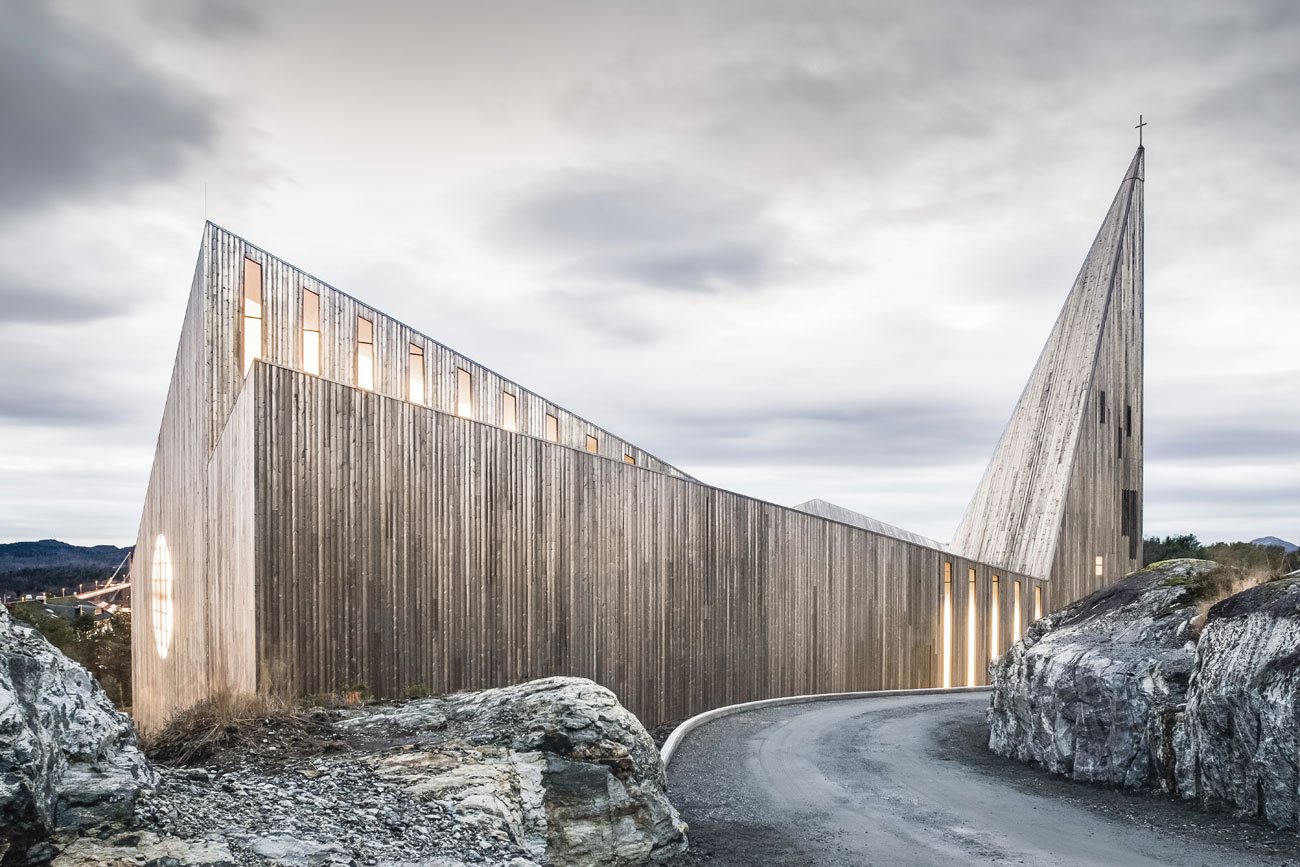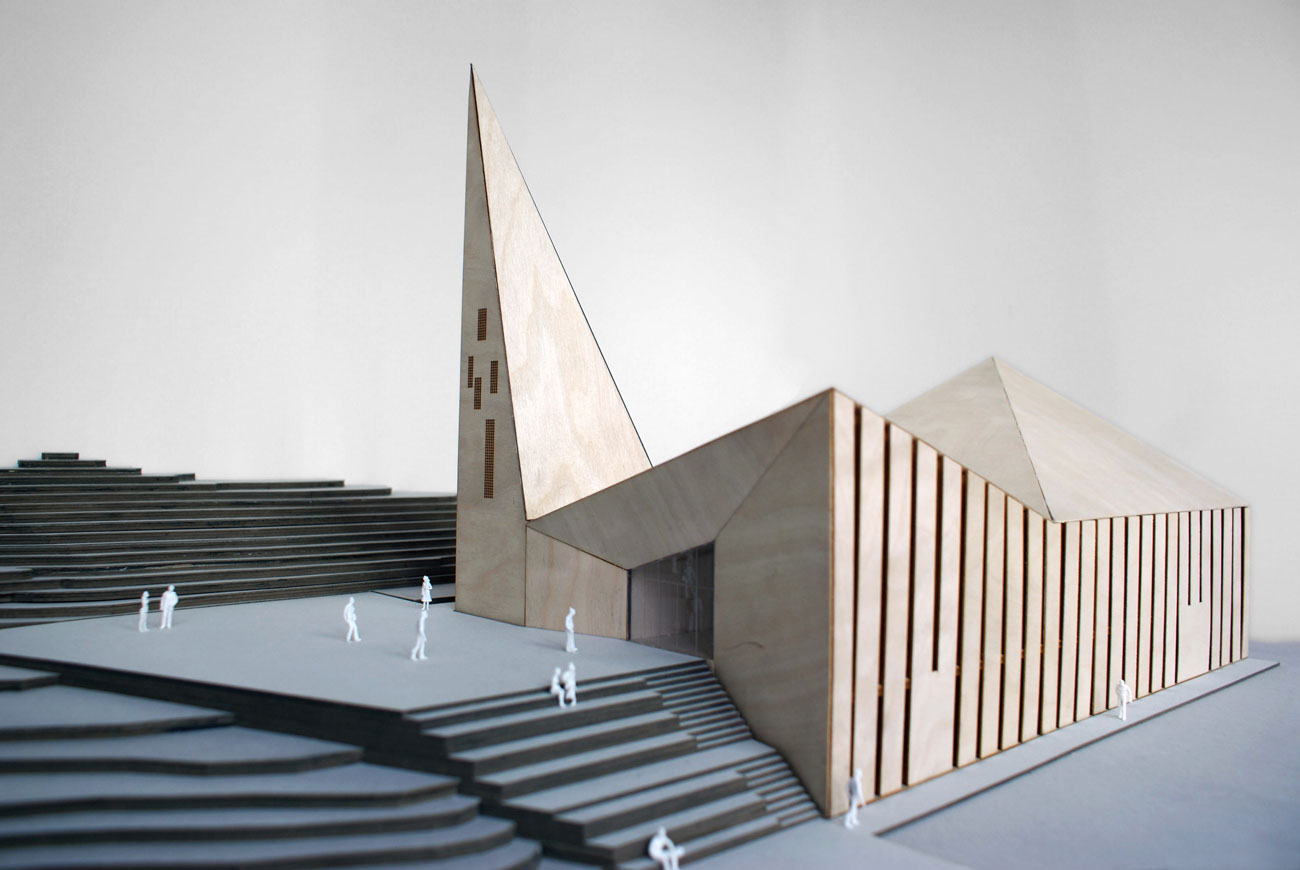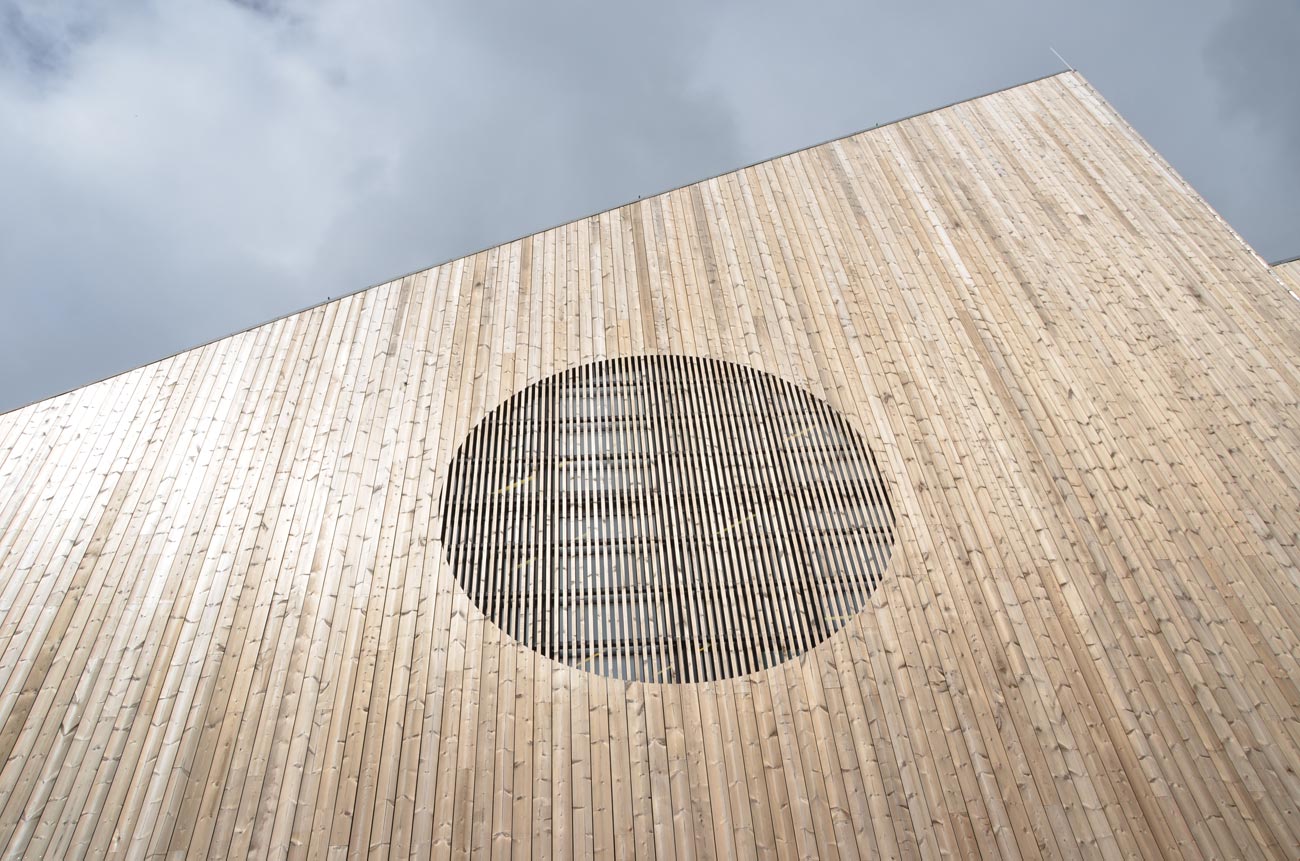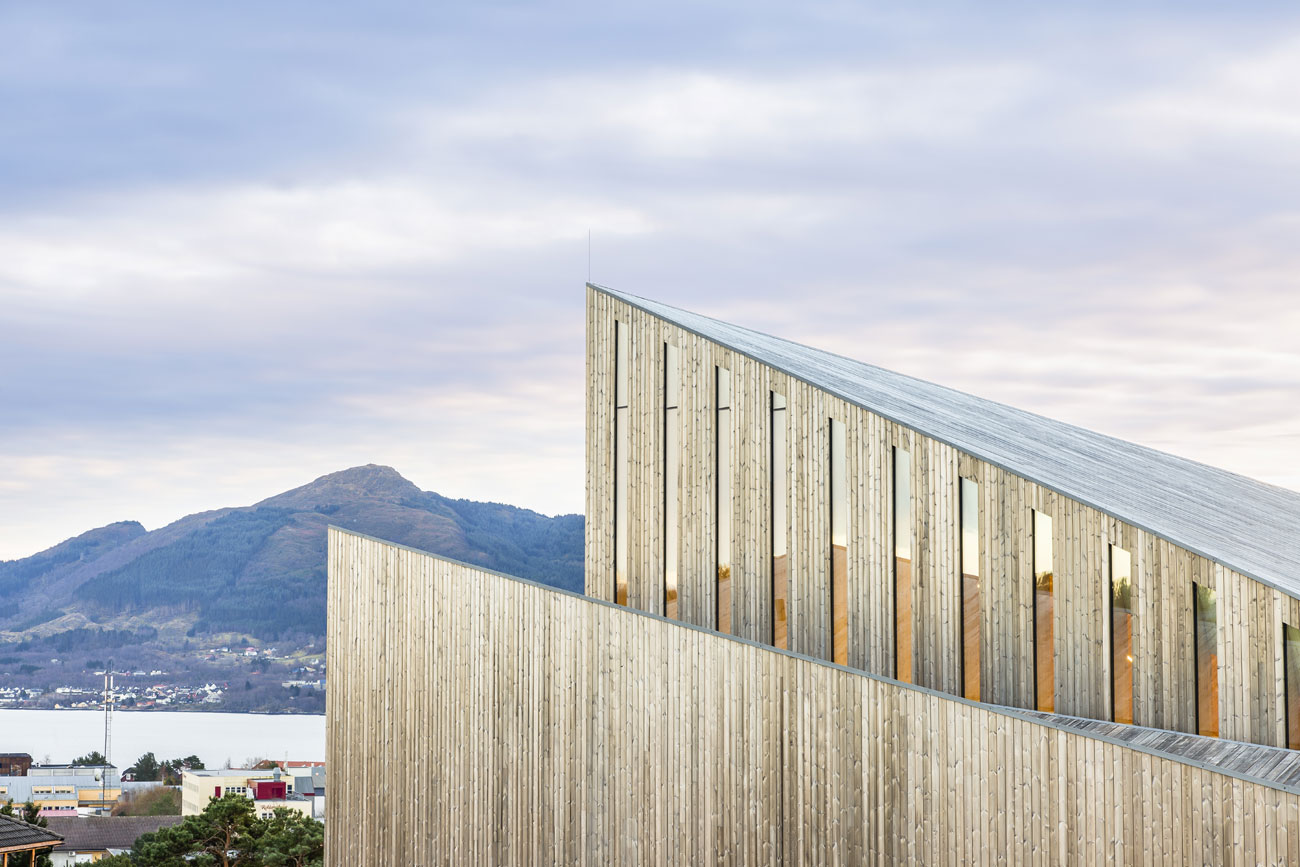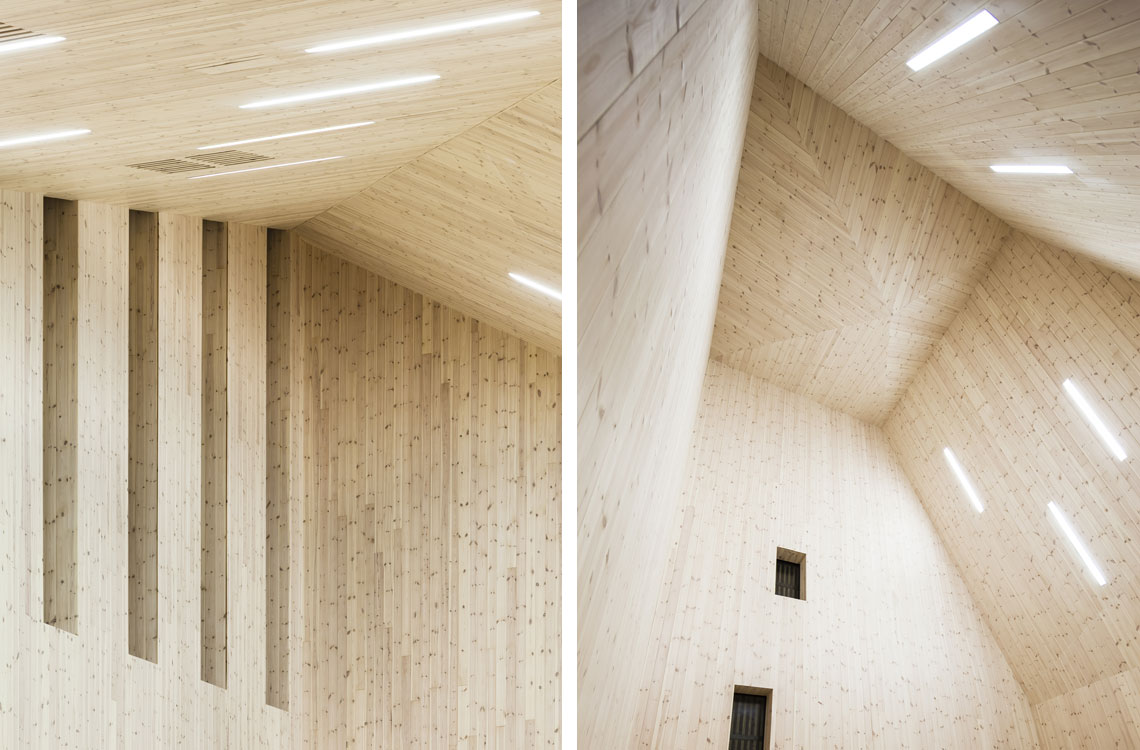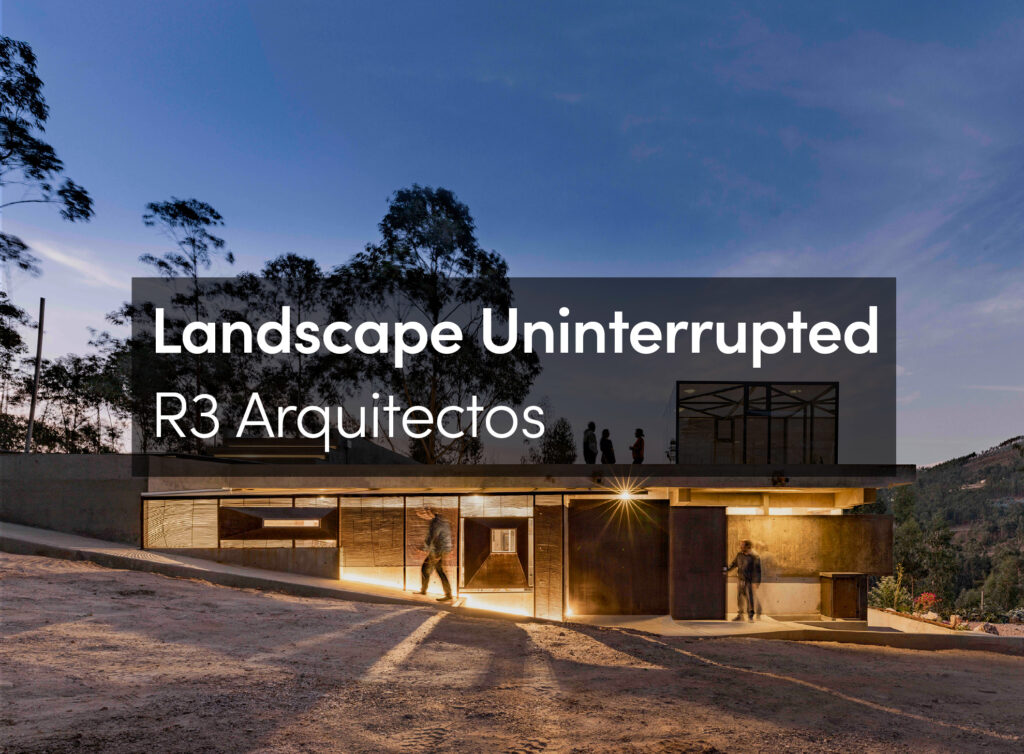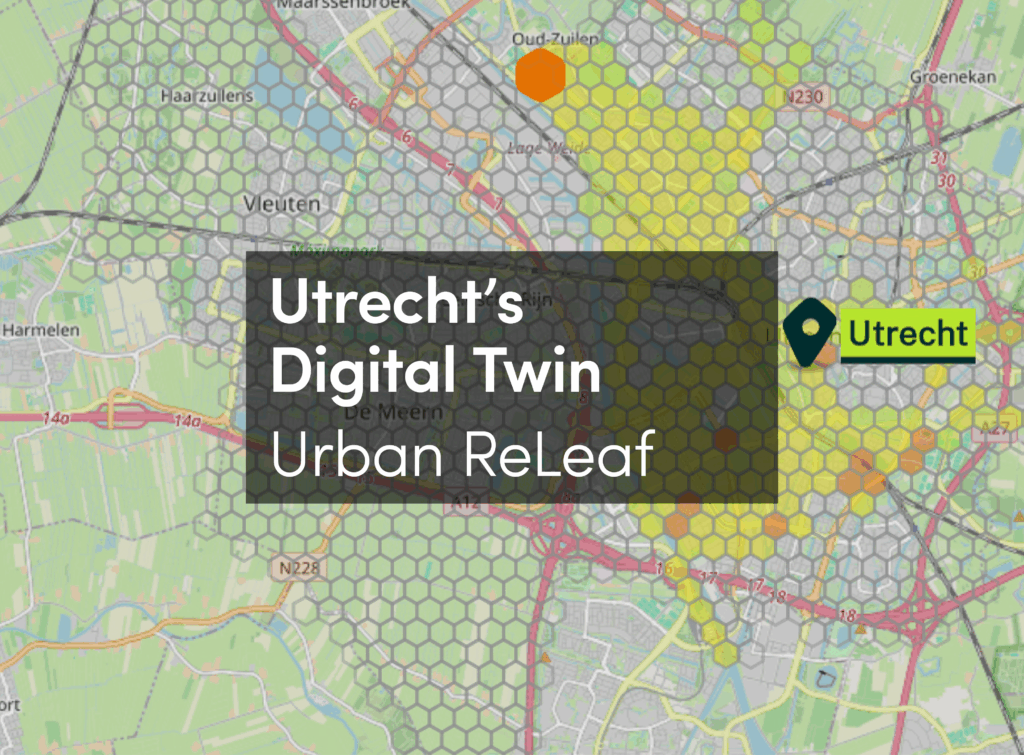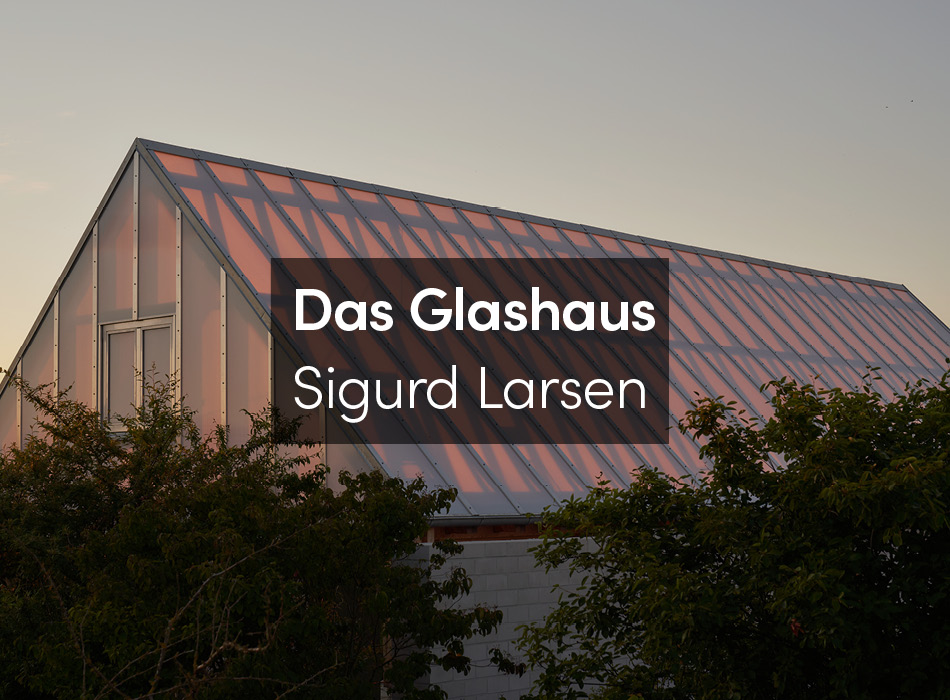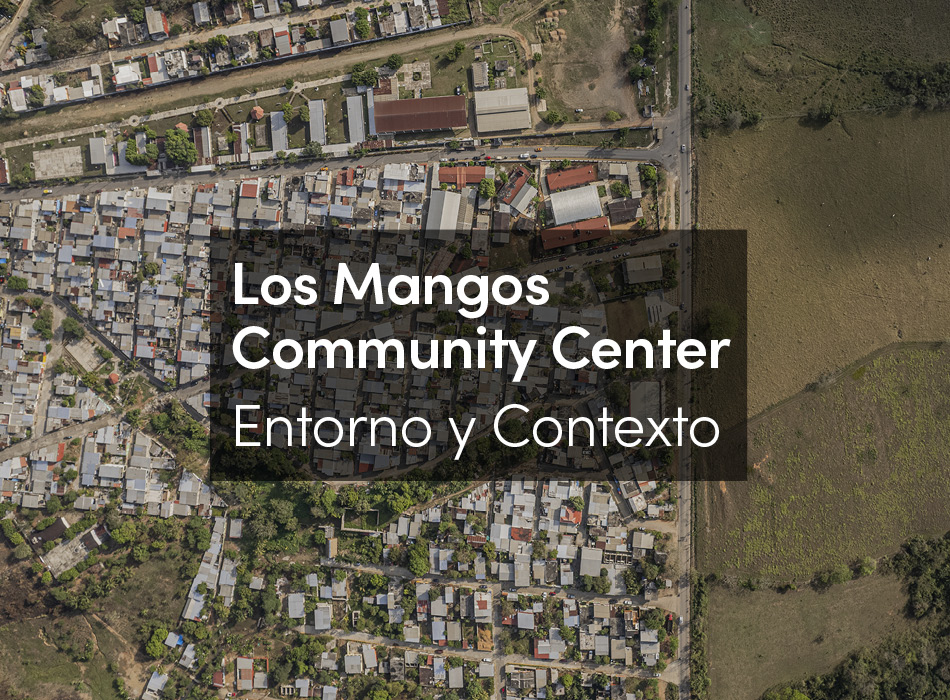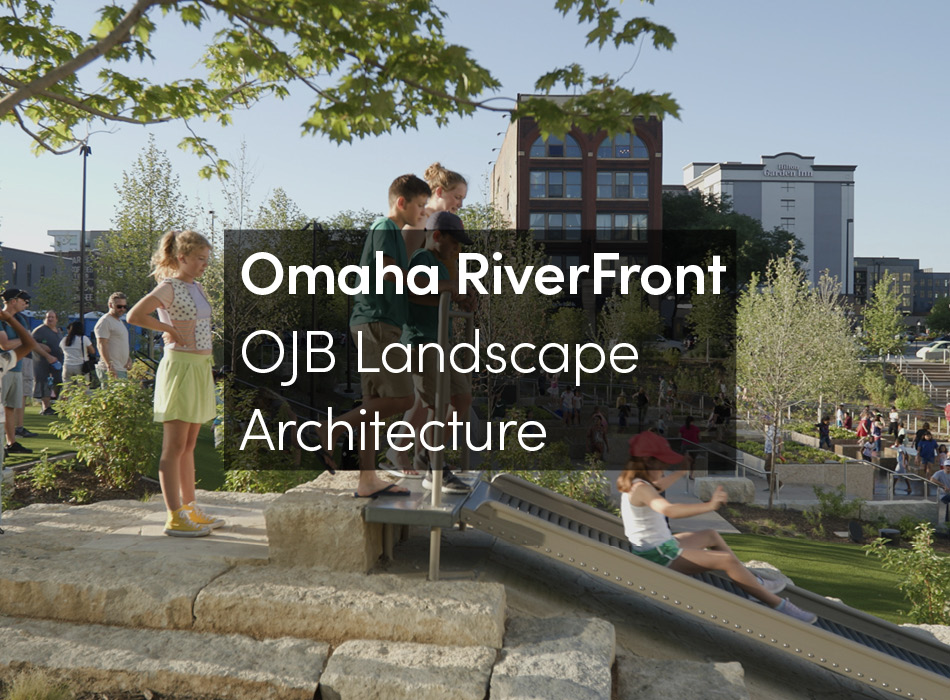The new Community Church in Knarvik, located on Norway’s scenic west coast, north of Bergen, is built on a privileged site overlooking the cultural landscape and local town centre. The building is carefully adapted to an existing hillside, intertwining the built and natural environments, providing the church with an inspiring context in the surrounding landscape of heath. Its distinctive and innovative character and central location make it a landmark in the community, intended to be inviting and inclusive for all people to cultivate their faith throughout the week.
The church signals its function with sacral dignity and a recognisable form, in which the church spire, sanctuary and chapel are emphasised by ascending roof planes. Inspired by the local tradition of Norwegian stave churches, the building utilizes clear and elemental geometries, materials and constructions. The compact building volume is split into two stories with a rectangular plan, separating the sacred spaces above from the cultural and administrative functions below. An internal “church square” connects the two levels with an atrium staircase into a continuous space, which may be joined or separated from the sanctuary with sliding glass walls to accommodate more than 500 people.
Siteplan
Model
Elevations & Sections
Wood is the key material of the project, expressed in the homogeneous cladding of pre-weathered pine heartwood and mirrored by the light-coloured pine finish on all interior surfaces. The building lets in daylight through lancet-reminiscent tall and narrow windows, splayed in plan to maximise admittance and reduce glare. At night, the warm glow of the interior reveals the activities of its religious and cultural events.
The church aspires to provide a platform for a safe upbringing for children and youth, to become a local venue for gatherings and faith-based activities, and to facilitate art, music and cultural development. The architectural expression of the Community Church Knarvik presents spatial solutions and a materiality which unites religion, culture and the site-specific context into a whole.





